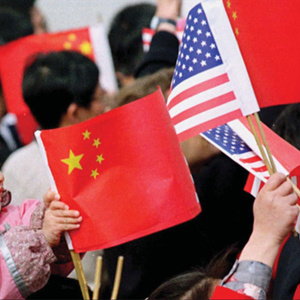Goods and Bads of anti-Iran Sanctions for China
By Mohammad Hossein Malaek, Iran’s former ambassador to China

China keeps insisting that it is not the right time for further sanctions against Iran and there is still room for diplomacy. Meanwhile, Five plus One’s first meeting to discuss Iran’s nuclear program has ended in failure, which many attribute to Beijing’s stance. Will China turn into a challenge for the United States over Iran’s nuclear program?
Mohammad Hossein Malaek, Iran’s former ambassador to China and foreign affairs analyst:
China’s expansionist policy is in nature a challenge for the United States. However, the difference between China and the United States over Iran and its disputed nuclear program is not a matter of strategic disagreement, but tactical. In other words, Iran is not a big impediment in China-US relations.
New fiscal and economic sanctions the United States is planning to impose will be a huge setback in Iran-China relations, as they shackle trade partnership of Tehran and Beijing. In the recent years, China has purchased an annual estimated value of 9 billion dollars of oil from Iran, the price of which it in pays in cash. The process has however become increasingly burdensome, creating legal problems for bilateral contracts.
U.S-supported sanctions could not freeze the trade partnership between Iran and China, but they add to the already existing problems. Tehran can still supply its demands through cash purchase and Beijing won’t cut THE economic ties. Things will be the same, only with more courts and legal obstacles.
The Chinese are not interested in any more challenges in the way of their economic ties with Iran. That naturally turns them into critics of tougher sanctions. To keep up their exchanges with American fiscal institutes, Chinese banks have agreed not to issue letters of credit for Iranian traders and organizations and stop dollar-based transactions. Nevertheless, the stronger economic ties between Iran and China, the more difficult it gets for them to carry out financial proceedings. Meanwhile, let’s not remember that domestic and international circumstances stop Americans from pressurizing the Chinese.
China’s discontent fades away when it comes to the sanctions against Iran’s oil and gas projects. Punitive measures targeting Iran’s energy industry in recent years have been a blessing for Beijing. They have given it a rare opportunity to invest in Iran’s lucrative fields. China has now actually become Iranian Oil Ministry’s first option. The result has been a plunge in Iran’s energy industry from top global standards to Chinese standards. In negotiations, Beijing tries to persuade Iranians replace Western technology with Chinese technology. There was a time when Chinese commodities where not an item in Iranians’ purchase list. Now, they are topping the list and that is the biggest achievement for China.
Mohammad Hossein Malaek, Iran’s former ambassador to China and foreign affairs analyst:
China’s expansionist policy is in nature a challenge for the United States. However, the difference between China and the United States over Iran and its disputed nuclear program is not a matter of strategic disagreement, but tactical. In other words, Iran is not a big impediment in China-US relations.
New fiscal and economic sanctions the United States is planning to impose will be a huge setback in Iran-China relations, as they shackle trade partnership of Tehran and Beijing. In the recent years, China has purchased an annual estimated value of 9 billion dollars of oil from Iran, the price of which it in pays in cash. The process has however become increasingly burdensome, creating legal problems for bilateral contracts.
U.S-supported sanctions could not freeze the trade partnership between Iran and China, but they add to the already existing problems. Tehran can still supply its demands through cash purchase and Beijing won’t cut THE economic ties. Things will be the same, only with more courts and legal obstacles.
The Chinese are not interested in any more challenges in the way of their economic ties with Iran. That naturally turns them into critics of tougher sanctions. To keep up their exchanges with American fiscal institutes, Chinese banks have agreed not to issue letters of credit for Iranian traders and organizations and stop dollar-based transactions. Nevertheless, the stronger economic ties between Iran and China, the more difficult it gets for them to carry out financial proceedings. Meanwhile, let’s not remember that domestic and international circumstances stop Americans from pressurizing the Chinese.
China’s discontent fades away when it comes to the sanctions against Iran’s oil and gas projects. Punitive measures targeting Iran’s energy industry in recent years have been a blessing for Beijing. They have given it a rare opportunity to invest in Iran’s lucrative fields. China has now actually become Iranian Oil Ministry’s first option. The result has been a plunge in Iran’s energy industry from top global standards to Chinese standards. In negotiations, Beijing tries to persuade Iranians replace Western technology with Chinese technology. There was a time when Chinese commodities where not an item in Iranians’ purchase list. Now, they are topping the list and that is the biggest achievement for China.

